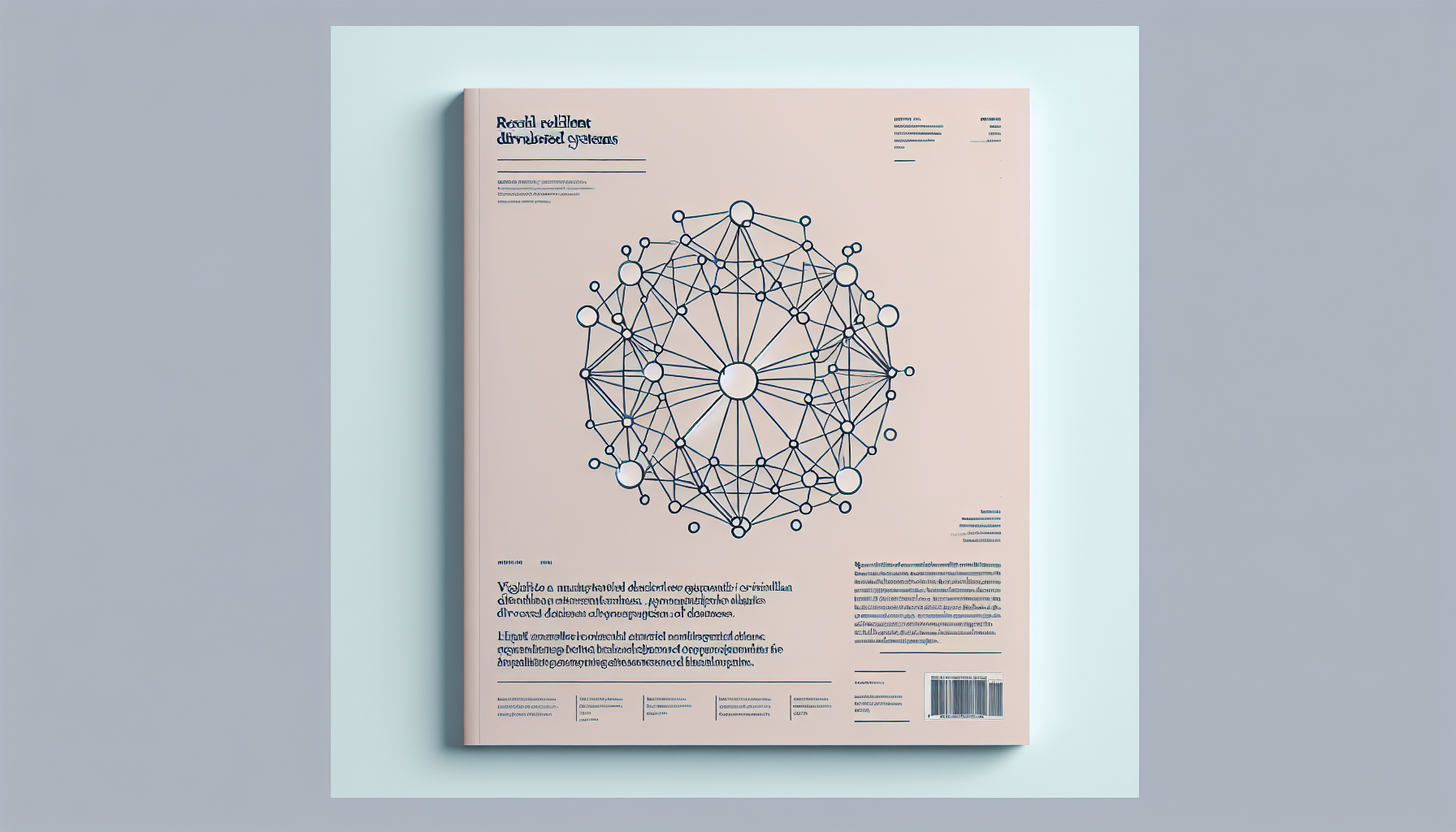Designing Resilient Distributed Systems: Evergreen Strategies for Reliability and Scalability
Master foundational principles and actionable strategies for robust distributed systems development.

Understanding the Evergreen Challenge of Distributed Systems
Building distributed systems that maintain reliability and scalability over extended periods remains a fundamental engineering challenge. Changes in network conditions, hardware variations, software upgrades, and evolving user demands can expose fragile architectures. A timeless approach to distributed system design requires embracing core principles that foster resilience and adaptability rather than chasing short-lived fixes.
Core Principles for Resilience and Scalability
- Fault Tolerance: Anticipate partial failures, isolate faults, and recover gracefully.
- Idempotency: Design operations that can be safely retried without adverse effects.
- Partition Tolerance: Accept that network partitions will occur and plan for consistency trade-offs.
- Observability: Implement comprehensive monitoring and tracing to detect, diagnose, and respond promptly.
- Scalable Architecture: Use modular, loosely coupled components and scalable communication patterns.
Evergreen Solution 1: The Circuit Breaker Pattern with Adaptive Backoff
The circuit breaker pattern prevents cascading failures in distributed applications by monitoring failure rates and temporarily halting requests to failing services. To future-proof this pattern, adaptive backoff algorithms increase or reset the wait time based on dynamic system health feedback.
Implementation Steps:
- Integrate real-time error rate tracking and threshold configuration.
- When failure threshold is exceeded, open the circuit and reject requests immediately.
- Implement adaptive timers that prolong or shorten wait times depending on success rates.
- Use fallback mechanisms to maintain service availability during circuit open periods.
Code Example: Adaptive Circuit Breaker in Python
import time
class AdaptiveCircuitBreaker:
def __init__(self, failure_threshold=5, initial_timeout=2):
self.failure_threshold = failure_threshold
self.failure_count = 0
self.state = 'CLOSED' # Possible states: CLOSED, OPEN, HALF_OPEN
self.timeout = initial_timeout
self.last_failure_time = None
def call(self, func, *args, **kwargs):
if self.state == 'OPEN':
if time.time() - self.last_failure_time > self.timeout:
self.state = 'HALF_OPEN'
else:
raise Exception('Circuit OPEN: Request rejected')
try:
result = func(*args, **kwargs)
self._on_success()
return result
except Exception as e:
self._on_failure()
raise e
def _on_failure(self):
self.failure_count += 1
if self.failure_count >= self.failure_threshold:
self.state = 'OPEN'
self.last_failure_time = time.time()
# Exponentially increase timeout
self.timeout = min(self.timeout * 2, 60)
def _on_success(self):
if self.state == 'HALF_OPEN' or self.state == 'OPEN':
self._reset()
def _reset(self):
self.failure_count = 0
self.state = 'CLOSED'
self.timeout = 2
Evergreen Solution 2: Event Sourcing with CQRS for Reliable Data Consistency
Event sourcing stores state changes as an immutable log of events, while Command Query Responsibility Segregation (CQRS) separates write and read models. Together, they provide a robust framework for state reconciliation and scalability.
Implementation Steps:
- Design a clear set of domain events representing all state transitions.
- Persist all events sequentially in an append-only event store.
- Build separate projections for read queries that can be independently scaled.
- Leverage snapshots for fast state reconstruction to optimise performance.
- Implement tools for event replay and auditing to ensure data integrity and facilitate recovery.
Code Demonstration: Basic Event Sourcing Pattern (Pseudo-code)
class EventStore:
def __init__(self):
self.events = []
def save_event(self, event):
self.events.append(event)
def get_events(self):
return self.events
class BankAccount:
def __init__(self, event_store):
self.balance = 0
self.event_store = event_store
self._replay_events()
def _replay_events(self):
for event in self.event_store.get_events():
self._apply(event)
def _apply(self, event):
if event['type'] == 'deposit':
self.balance += event['amount']
elif event['type'] == 'withdrawal':
self.balance -= event['amount']
def deposit(self, amount):
event = {'type': 'deposit', 'amount': amount}
self.event_store.save_event(event)
self._apply(event)
def withdraw(self, amount):
if self.balance < amount:
raise Exception('Insufficient funds')
event = {'type': 'withdrawal', 'amount': amount}
self.event_store.save_event(event)
self._apply(event)
Engagement and Insight Blocks
Did You Know?
Modern distributed systems face partial failures up to 60% of the time under heavy load, making fault-tolerant design absolutely critical for uptime and user trust.
Pro Tip: Always test distributed system behaviours with chaos engineering tools like Principles of Chaos to uncover weaknesses before production incidents.Warning: Avoid tightly coupling services with synchronous calls; this often results in cascading failures and fragile architectures.
Evening Actionables
- Implement an adaptive circuit breaker pattern around critical remote API calls in your systems.
- Begin incorporating event sourcing and CQRS in new projects to future-proof data integrity and scalability.
- Set up end-to-end observability with distributed tracing systems (e.g., OpenTelemetry) to gain real-time fault detection.
- Review and refactor synchronous dependency chains to asynchronous, decoupled communications.
- Explore the article on Implementing Explainable AI Frameworks for Ethical and Trustworthy Automation to enhance transparency and trust in distributed AI components.





Comments ()